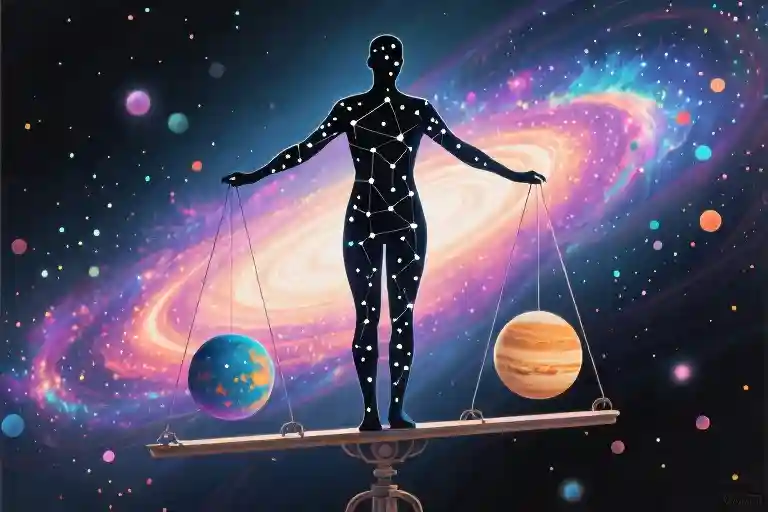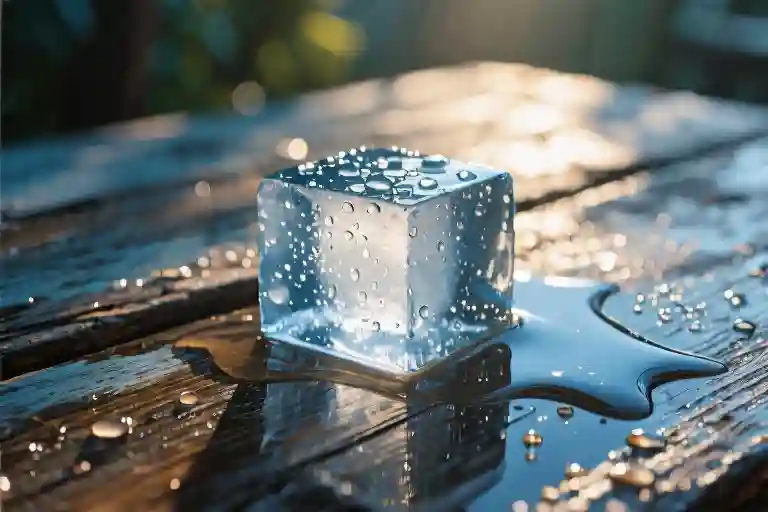There’s a particular heaviness that settles in around 3am, when the world holds its breath and your ribcage suddenly remembers it’s housing something fragile. You lie there measuring time by the pulse in your temples, wondering if the universe keeps similar tabs on your existence. At twenty-five (or thirty-two, or forty—the numbers shuffle but the question remains), we all hit this moment where the cosmic math doesn’t add up: how can something that took 13.8 billion years to assemble feel so…insignificant on a Tuesday?
The ceiling fan above you moves the same air that once rippled through dinosaur feathers, that carried the first human laughter, that will someday swirl through abandoned cities. You’re breathing recycled stardust, yet the weight of your student loans feels more tangible than the miracle of your carbon-based composition. This is the existential paradox of our age—knowing intellectually that we’re the universe observing itself, while emotionally feeling like a typo in the grand manuscript.
What’s startling isn’t the loneliness of these nocturnal reckonings, but their universality. The same thought that flickers through your mind during another endless Zoom meeting—Is this really why hydrogen fused in primordial stars?—has haunted humans since we first traced constellations in cave mud. Our ancestors painted their existential dread on walls; we type ours into Notes app drafts at 3:17am. The medium changes, the trembling remains.
Perhaps meaning isn’t something we uncover but something we assemble from the debris of ordinary days—the steam rising from morning coffee arranging itself into temporary constellations, the way your best friend still snort-laughs at the same joke after fifteen years, the inexplicable rightness of rain against windows when you have nowhere to be. These aren’t distractions from the Big Questions, but the very fabric we use to weave answers.
Right now, as your eyes scan these words, approximately 100,000 chemical reactions are occurring every second in each of your 37 trillion cells to make that simple act possible. The oxygen entering your lungs has traveled 150 million kilometers from our star. The device you’re holding contains metals forged in supernovae so distant their light hasn’t reached us yet. You are, quite literally, a convergence of impossibilities—and yet here you are, worrying about your LinkedIn profile.
This isn’t to diminish your very real human struggles, but to widen the frame. Existential dread and grocery lists can occupy the same mind. The sublime and the mundane aren’t opposing forces—they’re different frequencies of the same cosmic vibration. Tomorrow will likely bring both the crushing banality of laundry and a moment of sudden, unasked-for grace—perhaps sunlight hitting a puddle in exactly the way that makes you pause mid-stride, your chest expanding with something too big to name.
That expansion is the point. The universe didn’t go through all this trouble just to produce accountants and Instagram influencers—it made creatures who could look up at the void and say yes to morning coffee and heartbreak and overdue library books. Your existence isn’t a question needing an answer, but an answer still forming its question.
The Weight of Being
There’s a particular heaviness that comes with being twenty-five. Not the kind you can measure on a scale, but the sort that settles in your ribcage during quiet moments – when you’re staring at your fourth cup of coffee, or watching strangers hurry past your office window. It’s the unshakable sense that you should be feeling more… substantial by now.
Take Michael, a graphic designer from our reader community (he asked me to change his name). Last month he won an industry award, the kind that comes with a heavy crystal trophy. “I kept turning it in my hands,” he wrote, “wondering why it felt lighter than the guilt of calling in sick last Tuesday.” His confession arrived at 3:17 AM, attached to a photo of the trophy sitting beside an untouched slice of birthday cake.
This is what existential crisis looks like in our generation – not dramatic philosophical breakdowns, but the quiet accumulation of mismatched expectations. The way your LinkedIn profile grows shinier while your sense of purpose grows fuzzier. The dissonance between “I’m doing everything right” and “Why does this all feel so meaningless?”
We’ve become experts at performing competence while privately questioning whether we’re just beautifully packaged voids. The promotions stack up, the savings account grows, yet there’s this persistent whisper: “Is this all there is?” It’s enough to make you envy medieval peasants – at least they knew exactly which plague would kill them.
But here’s what the laws of physics whisper back: even falling serves a purpose. Terminal velocity teaches us that the faster you descend, the more air resistance builds until you stop accelerating. Your personal rock bottom isn’t an ending – it’s the point where opposing forces finally balance. That weight in your chest? It might just be the friction required to slow your descent.
Consider the hummingbird, wings beating fifty times per second not because it understands aerodynamics, but because stopping means falling. Our existential fluttering serves the same function – these questions about purpose aren’t signs of malfunction, but evidence of staying aloft. The very fact that you worry about meaning suggests you’re engaged in the precise activity that creates it.
Next time that crystalline trophy feels hollow, remember: even diamonds are just carbon atoms rearranged by pressure. Your current heaviness might be the necessary condition for whatever brilliance comes next.
The Cosmic Lottery Ticket in Your Pocket
We all know the odds are stacked against us when buying a lottery ticket. That slim chance of winning millions keeps us dreaming. But here’s a thought that makes Powerball look like child’s play: your very existence represents odds of 1 in 400 trillion. Not million, not billion—trillion.
Let’s break down what that cosmic probability really means. Imagine trying to win the jackpot every single day for 10,000 years straight. Now multiply that impossibility by the number of grains of sand on all Earth’s beaches. That’s roughly the mathematical unlikelihood of you being here, reading these words with your particular set of memories, quirks, and that slightly crooked smile you only notice in bathroom mirrors.
The universe operates on a timescale that makes human history look like the blink of an eye. If we compressed all 13.8 billion years of cosmic existence into a single 24-hour day, the entirety of human civilization would occupy just the last quarter-second before midnight. Your lifetime? Less than the time it takes light to travel from your phone screen to your retina.
Yet within that fleeting cosmic moment, here you are—a walking statistical anomaly. Every atom in your body was forged in the nuclear furnaces of long-dead stars. The calcium in your bones, the iron in your blood, even the carbon that forms the foundation of your DNA—all stardust on loan from supernovae that exploded before Earth formed.
This perspective shifts things, doesn’t it? That anxiety about your career path, the awkward conversation replaying in your head, the unpaid bills on your kitchen counter—they all exist within this miraculous cosmic context. The sunlight currently catching in your eyelashes traveled 93 million miles through space just to reach you, passing through the same atmosphere that dinosaurs breathed, that Shakespeare sighed into, that your great-grandparents shared.
We tend to measure our worth by productivity metrics and social media validation, forgetting we’re made of the rarest materials in existence. Your very molecules are older than mountains, your consciousness more complex than any galaxy we’ve observed. The next time existential dread creeps in, remember: you’ve already won the ultimate lottery simply by being here.
In this near-impossible probability lies everything—your morning coffee rituals, the way you hum off-key in the shower, the particular crinkle around your eyes when you laugh. The universe may be indifferent, but it certainly went to extraordinary lengths to arrange this moment, this breath, this heartbeat.
Quantum Moments: Catching Life in Superposition
The neuroscience of memory formation reads like cosmic poetry. Every time your brain decides to preserve a moment—whether it’s the way morning light paints your bedroom wall or the accidental harmony of strangers laughing at a crosswalk—it’s essentially placing a bet against entropy. Our neurons fire with the same unpredictability as quantum particles, making statistically improbable connections that somehow compose what we call a life.
Consider the last time you experienced déjà vu. That eerie sensation is your temporal lobe misfiring, stitching together fragments of perception into false familiarity. Yet even this neurological glitch feels sacred when framed differently: your consciousness briefly touching the multiverse version of yourself who did live that moment before.
10 Lab-Proof Perfect Moments
- The Metro Epiphany
When a subway delay makes you notice the mural you’ve walked past 137 times—suddenly seeing the hidden owl in the brushstrokes. - Stovetop Alchemy
That precise second when butter transitions from melted to browned, releasing a fragrance that inexplicably smells like your grandmother’s kitchen. - Shared Silence
Sitting with someone you love, both absorbed in separate books, when you simultaneously look up and exchange glances that contain entire conversations. - Raindrop Roulette
Walking through a storm without an umbrella and somehow remaining dry, as if the water molecules conspired to bend around you. - Stranger’s Smile
Making fleeting eye contact with a commuter whose sudden, unguarded grin lifts your mood for reasons no clinical study could quantify. - Pillow Revelation
Waking from a nap with the solution to a problem you hadn’t consciously been working on, your subconscious having assembled the pieces while you drifted. - Keyhole Light
Noticing how afternoon sun transforms the ordinary dust motes in your apartment into swirling galaxies visible only through a specific angle near the bookshelf. - Playlist Serendipity
When shuffle mode delivers exactly the song you needed to hear at the exact emotional frequency required. - Breath Synchronicity
That unconscious moment when your breathing aligns with the person sleeping beside you, creating a temporary biological harmony. - Window Transition
Watching your reflection gradually fade as evening falls, until you’re no longer visible in the glass—just the city lights beyond, and the odd comfort of being both present and dissolved.
These moments resist laboratory replication not because they’re supernatural, but because their magic exists in the intersection of physical reality and personal meaning. The same chemical processes that create a sunset (Rayleigh scattering, if we’re being technical) occur daily, yet we only perceive certain ones as transcendent based on our mental state, memories, and who happens to be standing beside us.
Memory formation follows similar rules. When neuroscientists map how experiences become long-term memories, they find our brains aren’t objective archivists but creative editors. The scent of jasmine might cement a moment because your olfactory bulb has direct pathways to the amygdala and hippocampus—or simply because you once kissed someone important near jasmine bushes. There’s poetry in this neural subjectivity; it means your most ‘random’ precious memories are actually the universe’s way of curating meaning specifically for you.
Now, let’s weave these stardust fragments into something tangible.
Existential Crafts: Weaving Stardust into Daily Life
The weight of existence often feels heaviest when we’re alone with our thoughts—those quiet moments when the universe seems to demand an explanation for our being. But what if we could hold that weight differently? Not as a burden, but as raw material for creating meaning? Here’s how to transform cosmic awe into tangible practices.
The 3-Minute Cosmic Perspective Meditation
- Ground in gravity (30 sec)
Press your palms flat against any surface—a desk, your knees, a park bench. Feel the resistance of atoms that originated in supernovae. Your body’s weight is literally stardust pressing against more stardust. - Breathe borrowed air (1 min)
With each inhalation, consider:
- This oxygen atom was exhaled by a Jurassic fern
- This nitrogen molecule may have passed through Van Gogh’s lungs
- The carbon dioxide you release will feed tomorrow’s sunlight
- Zoom lens focus (90 sec)
Alternate between:
- Microscopic: Trace one vein on your wrist back to primordial ocean chemistry
- Planetary: Imagine Earth as a blue marble in NASA’s famous photograph
- Cosmic: Picture your worries floating in the Orion Arm’s 100,000 light-year span
Pro tip: Do this while waiting for coffee to brew. The steam becomes your personal nebula.
The Existentialist’s Diary Template
Each evening, answer just one question (rotate weekly):
Monday’s prompt:
“What ordinary moment today would fascinate a time traveler from 3023?”
(Example: Watching rain slide down a window while your phone buzzed unnoticed.)
Wednesday’s prompt:
“Which interaction today contained unspoken stardust?”
(The barista remembering your order, a stranger’s umbrella tilt.)
Friday’s prompt:
“Where did I feel the 1/400 trillion odds today?”
(Your exact genetic laugh echoing your great-grandmother’s.)
The Particle Physics of Small Joys
When existential dread looms, conduct this thought experiment:
- Identify one sensory input (e.g., the citrus smell of cleaning products)
- Trace its cosmic lineage:
- Citrus molecules → Photosynthesis → Stellar nucleosynthesis
- Measure its emotional half-life:
- How long the pleasant tingle lingers after noticing
This isn’t about manufacturing happiness. It’s recognizing that even your melancholy is made of quarks that survived the Big Bang. The same particles that ache for meaning also compose the sunlight currently gilding someone’s eyelashes halfway across the world.
Remember: You’re not solving existence. You’re fingerpainting with its remnants. The coffee ring on your notebook? That’s your own personal cosmic microwave background radiation.
We Are______
The cursor blinks at the end of this unfinished sentence like a heartbeat waiting to be completed. There’s something profoundly human about leaving space for interpretation, about acknowledging that no single word could ever encapsulate the cosmic improbability of our shared existence.
Your fingertips against the screen right now—the warmth transferring from skin to glass—contain atoms forged in stellar explosions older than our solar system. That dull pencil rolling across your desk once traveled light-years as interstellar dust. Every mundane object in your immediate surroundings whispers the same impossible truth: you are the universe observing itself.
Try this: press your palm flat against any solid surface. The desk. A wall. Your own knee. Feel the resistance? That’s 13.8 billion years of cosmic history pushing back. Every particle in that contact point has survived supernovas, comet collisions, and the chaotic dance of quantum probabilities—all to create this exact moment where you choose to notice them.
We are______. The blank isn’t an omission, but an invitation. An acknowledgment that definitions limit what should remain wondrous. Perhaps you’ll fill it with “stardust remembering its origin” or “temporary constellations of borrowed atoms.” Maybe today it simply says “tired but trying.”
Here’s your stardust assignment (should you choose to accept it):
- Before sleep tonight, identify one ordinary object you interacted with today
- Research its most exotic atomic component (the carbon in your coffee beans? Iron in your doorknob?)
- Trace its cosmic lineage back to at least one astronomical event
No need to share or document this. The universe already knows. The act itself—that momentary recognition of your connection to colliding neutron stars or dying red giants—changes the weight of existing. Changes it from “why am I here” to “how miraculous that we get to ask at all.”
We are______. And that blank space? That’s where the magic lives.





